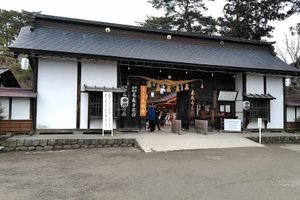
In the quiet town of Hiraizumi in northern Japan, far from the bustling temples of Kyoto or Nara, lies a garden that has remained nearly unchanged for over 800 years. Mōtsū-ji, one of the oldest Tendai temples in Japan, was founded in 850 by the famed monk Ennin, better known in Japan as Jikaku Daishi. The northern Fujiwara lords expanded it, building dozens of halls and pagodas, and hosting hundreds of monks. Unfortunately, after the collapse of the Northern Fujiwara, the temple fell into disrepair. All the original buildings had been destroyed by 1226, and the complex was only rebuilt much later.
The Tendai sect of Buddhism was founded in Japan in the 9th century. It emphasizes selfless devotion and cultivation of the spirit, often through esoteric rituals. One such ritual is the practice of circumambulation, or slowly circling a sacred object or place, all the while contemplating the nature of the Buddha. This could be a statue of the Buddha, a temple, or even Mt. Hiei, the center of Tendai Buddhism in Kyoto. It is believed that through such devotion, one could be reborn in a Pure Land, free from the cycle of samsara.
The best-known and most notable feature of Mōtsū-ji is its Pure Land garden. While most of the other features of the temple have been remade over the centuries, the Pure Land garden has remained almost the same for over 800 years. It was designed with the principles of Sakuteiki, thought to be the oldest garden planning book in the world. The main pond, Oizumi ga Ike, exhibits elements reminiscent of a rocky ocean shoreline. The site is also notable for its use of borrowed landscape. Trees and mountains that are located physically outside of the garden itself are nonetheless considered in the design, making the garden seem much larger than it actually is.
Throughout the turbulent history of Mōtsū-ji, it is perhaps fitting that the one thing that survived was the Pure Land garden. While temple buildings, both old and new, can be very beautiful, the garden is a timeless reminder of the true promise of Tendai Buddhism—an eternal paradise, free from the cycle of suffering, death, and rebirth.
0 comments:
Post a Comment